You searched for: bergen-belsen
<< Previous | Displaying results 91-100 of 193 for "bergen-belsen" | Next >>
-
Edith Riemer
ID CardHela Pinsker and Elimelech Riemer were married in 1928. Two years later the Jewish couple's only child, Edith, was born. The Riemers lived in a comfortable apartment in Berlin, in a building that also housed offices of the Communist Party of Germany. 1933-39: Hitler banned the Communists, so their offices in Edith's building were shut down. When these offices were later broken into, the Gestapo blamed it on "the Jews." Though Edith's family wasn't involved, the Gestapo said that if the culprit was not…
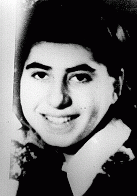
-
Jeno Brieger
ID CardJeno was born into a large, religious Jewish family in the village of Nagyhalasz in northeastern Hungary. The Briegers spoke Yiddish and Hungarian. After Jeno's mother died, his father remarried and the family moved to the town of Nyiregyhaza where his father owned and operated a hardware store. Nyiregyhaza had a Jewish population of 5,000. 1933-39: Jeno was the oldest son in a household of seven children. Nyiregyhaza was a rural town in which people still used horses and buggies. Jeno attended a…
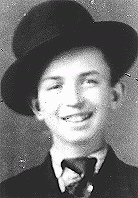
-
Hildegard (Hilda) Krakauerova Nitschkeova
ID CardHilda was the youngest of six children born to Jewish parents in a small Moravian town, where her father ran a dry-goods and clothing store. Her family spoke both Czech and German at home. Hilda was a tomboy when she was growing up, and competed on the Maccabi swim team. She attended a public secondary school in Hodinin, and wanted to pursue a career as a dental technician. 1933-39: In February 1933 Hilda moved to the Moravian capital of Brno where she attended dental school. On December 23, 1935, she…
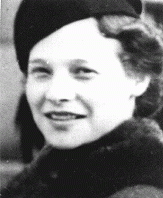
-
Training in farming skills
PhotoJewish youth attend a class on transplanting seedlings, part of a general course in farming sponsored by the American Jewish Joint Distribution Committee at the Bergen-Belsen displaced persons camp. Germany, August 1, 1946.
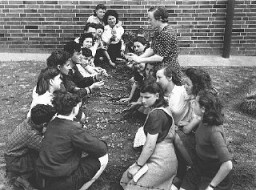
-
Jeno Brieger: Maps
Media EssayJeno Brieger was born to a Jewish family in northeastern Hungary. The Germans occupied Hungary on March 19, 1944. Jeno was forced into a ghetto and then deported to Auschwitz and Bergen-Belsen, where he was liberate...
-
Joseph Muscha Mueller
ID CardJoseph was born in Bitterfeld, Germany, to Roma ("Gypsy") parents. For reasons unknown, he was raised in an orphanage for the first one-and-a-half years of his life. At the time of Joseph's birth, some 26,000 "Gypsies"—members of either the Sinti or Roma tribes—lived in Germany. Though most were German citizens, they were often discriminated against by other Germans and subjected to harassment. 1933-39: At age one-and-a-half, Joseph was taken into foster care by a family living in Halle, a city some…
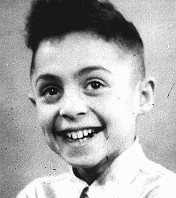
-
Hela Los
ID CardOne of nine children, Hela grew up in the Polish capital of Warsaw. Her father was an art and antique furniture dealer and had a store on Marszalkowska Street. Every year, from the beginning of the summer break until the Jewish High Holidays in the fall, the Los family vacationed in the town of Miedzeszyn, located a short train ride's distance from Warsaw. 1933-39: Hela and her family were still at their vacation home when the Germans entered Warsaw on September 28, 1939. As soon as it became possible,…
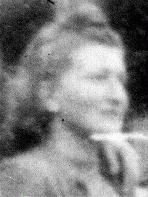
-
Mirjam Waterman Pinkhof
ID CardMirjam grew up on her family's farm in Loosdrecht. Her parents, secular Jews, had moved from Amsterdam in 1914, two years before she was born. The Watermans were pacifists. Mirjam attended a progressive school in Hilversum. Her brother and youngest sister attended the Kees Boeke School, a progressive school located in Bilthoven that taught pacifist and humanistic ideals. 1933-39: In 1938 Mirjam began teaching at the Kees Boeke school. A group of German-Jewish refugees came to the school in 1939. Mirjam…
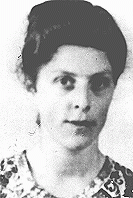
-
Dosia Szabszevicz
ID CardDosia, her older sister and parents lived on her grandfather's estate in the town of Ozorkow, eight miles from Lodz. Dosia's parents were secular Jews. They spoke both Polish and Yiddish to each other, but only Polish to their children. Dosia's father worked as an accountant, and her mother was active in organizing charity events for several of Ozorkow's Jewish organizations. 1933-39: A few days after Germany invaded Poland in 1939, Dosia saw the Polish army retreat through Ozorkow, carrying their wounded…
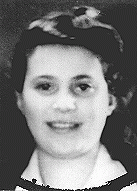
-
The 11th Armoured Division (Great Britain) - ID Card/Oral History
Media EssayThe 11th Armoured Division liberated the Bergen-Belsen concentration camp in April 1945. When its soldiers entered the camp, they witnessed the horrific conditions that prisoners had faced. Here, survivors of Bergen-Belsen recount their experience...
